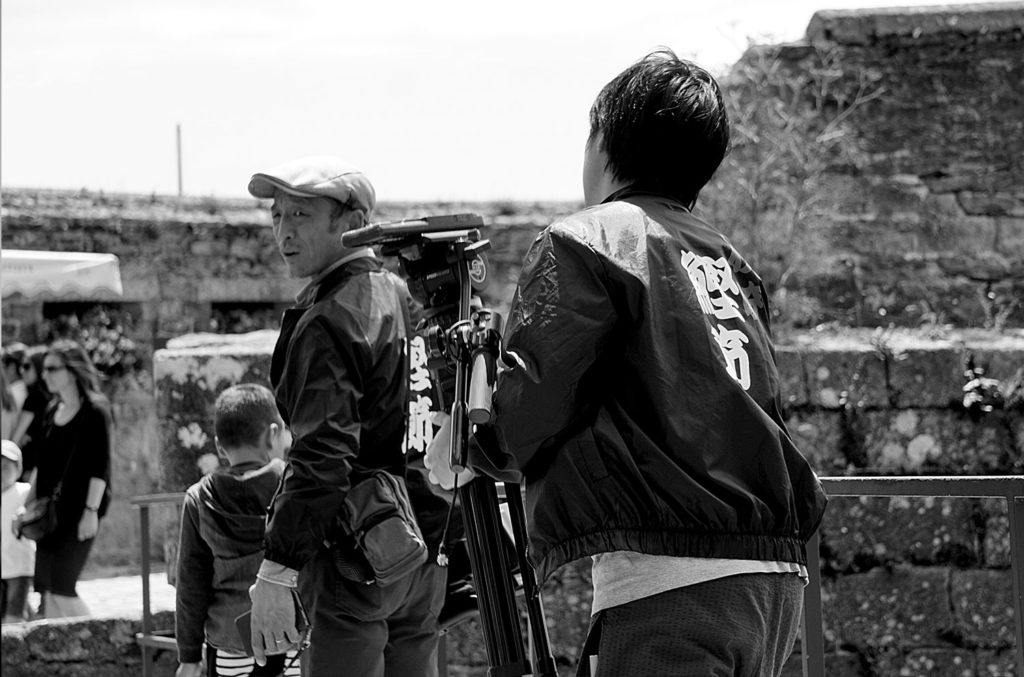Film making is an art in itself. It starts with an Idea or Inspiration; however, to make it to a reality, a successful collaboration of right talents is essential. As quoted by Sam Fuller, “A film is a battleground”. The complexity of making a good film is more than many people would care to believe. Roughly divided in three segments of Pre-production, production and post production, the film making work broadly revolves around nine stages.
1. Idea: The process of film making starts with an inspiration or Idea that sprung from our rendezvous with everyday life. There is no dearth of ideas; however the important thing is to contemplate whether it is good enough to create a lasting impression with a viable theme that can be developed into a strong script.
2. Development: A crucial part of film making, this is the time where idea takes the form of a script with all the essentials like a good screenplay, characters and moods, defining key moments in the film. Shooting film costs money, and therefore this is also the time for budgeting analysis and getting ready with the pitch for obtaining funds for further script development.
3. Packaging: Once the final scripting done, producer and director work towards ensuring the commercial success of the idea. The most common practice to ensure success is usually casting well known faces in the film. With so much money and reputation on stake, it is indeed important to package the project with best talent around.
4. Finance: This is perhaps the most tedious part of pre-production phase. Everybody working on the project needs to pay their bills, while they toil to make the project a success. And more often than not, many talented movie makers struggle to see their idea coming to life for this very reason. It is even tougher for Indie film makers, as there are lesser chances to get funded, unless they have exceptional marketing skills to convince the investors that their idea is going to make money in the end. Securing finance means half the battle won.
5. Pre-production: With finances in check, the pre production takes off officially, and cast and crew along with heads of technical units are hired and handed the copies of script during pre production phase. Nature, treatment, and the budget of a film determine the property and size of crew you are going to employ. During this stage every step of filming is planned, right from storyboarding, shooting permits to budget allocation, Insurance and technical aspects. The more time you spend in pre production, lesser are the chances to face challenges in successful completion of your project.
6. Shooting: As soon as a filmmaker has made it past the pre production phase, actual task of filming the idea begins. Once shooting is started, it is imperative to keep a regular check on schedule and budget since it is prone to go overboard with many unforeseen events that are likely to occur at the time of shooting. A smart production manager ensures that the budget and shooting schedule is managed well with lesser glitches on the go.
7. Post production: Post production work starts, soon as the raw film is shot and handed over to editing department for assembling the scenes. An editor’s job is as critical as direction. A smart edit can make an ordinary film come alive; on the other hand a bad edit might totally screw an otherwise brilliant script. VFX, color correction and color grading is also taken care of, to ensure each frame looks alive and larger than life. But edit is not the only part of post production. Sound design, foley and music play equally important role to give an edge to your film.
8. Distribution: While editor is busy making the final cut and polishing the movie for screening, producers need to ensure that the movie gets a distributor. A box office success equals financial gain, and distributors play an important part in ensuring that the film turns out to be a good investment for all parties involved. With so much competition around, it is difficult to judge if your film is going to stand out. If you are not able to get a distributor for your film, all the hard work you put in the project might just get wasted. While movie making is an art, distribution is pure business sense and therefore an experienced filmmaker always look for a reputed distributor who can manage all the possible distribution channels well. It is during this phase the marketing plans are executed with official posters, teasers, and press kits released for public screening. Film distributors usually throw a launch party for official first screening of the film and afterwards it gets distributed to cinema for wider audience.
9. Screening: The film gets sent to theatres across country or oversees for screening and voila! That’s where you sit back relaxed, basking in the glory of having made it to the finish line. There is no joy greater than seeing your idea taking a shape on screen that is well received by the audience.




